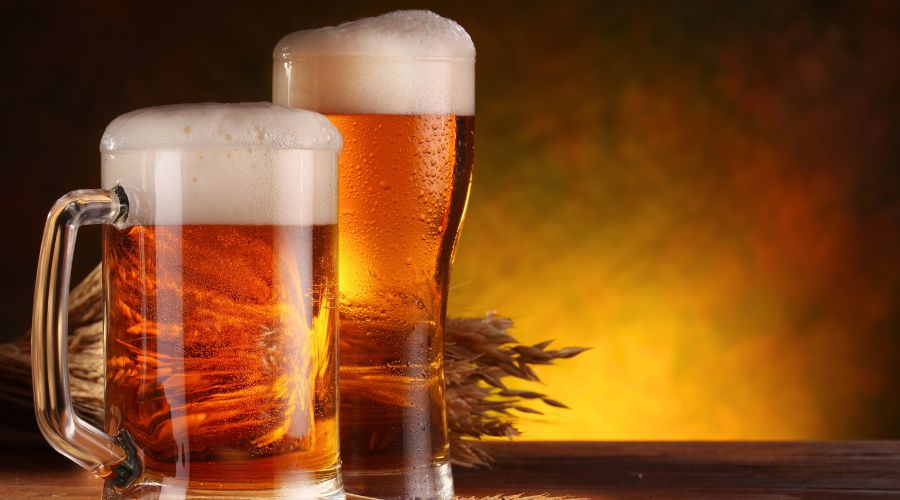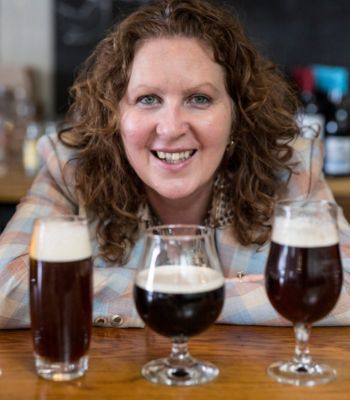Beer Day Britain: Cheers to beer and farmers producing its ingredients
15th June 2024
Today marks Beer Day Britain. This annual celebration champions Britain’s national alcoholic drink and the hard-working farmers who produce its key ingredients.

Beer Day Britain encourages people to join the National Cheers to Beer at 7pm on 15th June by raising a glass, saying ‘Cheers to beer’ and posting a message on social media with the hashtag #CheersToBeer.
Beer Day Britain was instigated in 2015 by Jane Peyton, an award-winning beer sommelier, drinks educator, broadcaster, author, events producer and founder of the School of Booze.
She said that the event receives no funding or sponsorship but is supported in kind by all the major organisations in the beer industry, including the Society of Independent Brewers Association, British Beer & Pub Association and the Campaign for Real Ale.
Cited in historical documents
The organiser explained: “Beer Day Britain is an annual celebration on June 15th for all beer lovers, and it celebrates all beer, including traditional ales, mainstream lagers, limited-edition craft beer and everything in between, no matter where it is brewed or who owns the brewing company.
“June 15th is significant because that is also the date Magna Carta was sealed in 1215. The great charter mentions ale in Article 35.
“‘Let there be throughout our kingdom a single measure for wine and a single measure for ale and a single measure for corn…’
“Ale was so important in England in 1215 that it was cited in one of the most significant legal documents in history. Today beer and pubs are still central to British life and seven out of 10 drinks sold in a pub are beer.”
Ale and beer – differences and similarities

Beer Day Britain spokesperson added that nowadays ale and beer are interchangeable terms, but it was not always this way.
Ale was made with malted barley, flavoured with herbs and spices but no hops, while beer was a malted barley drink with added hops, bestowing a refreshing bitterness consumed in continental Europe.
The first record of hopped beer in Blighty was circa 1362, imported from Amsterdam into Great Yarmouth.
The earliest mention of beer being brewed in England (from imported hops) was in 1412, made by a German alewife in Colchester.
The cultivation of hops started around 1520, when humulus lupulus was planted in Kent. However, ale drinking by English men and women was not to be abandoned easily, and both ale and beer continued to be brewed and consumed as distinctly different beverages.
“No one knows when unhopped ale ceased being popular – possibly the 18th century – in favour of the hopped beer that came to dominate brewing. It is also not clear when hopped beer started to be referred to as ‘ale’.
“Britain’s, or England as it was before the countries of Scotland and England were legally united in 1707, increasing influence overseas from the 17th century and vast trading network spread the demand for beer and introduced it to parts of the world where it had not previously been.
“Ships carried beer as a source of drinking water, for daily rations to keep the crew content, as ballast on ships, and as a trading commodity.
“From the founding of the East India Company in 1600, the first English settlement in Virginia in 1607, Australia’s penal colony in Botany Bay in 1788, to Guyana in 1796 English/British ships carried beer to all hemispheres,” they added.
Perfect climate
Beer is made by brewing water, malted cereal (usually barley) and hops together. The process is followed by the fermentation of the brew with yeast.
In most countries, Britain included, there are no rules on adding additional ingredients to beer. Some brewers include adjuncts such as fruit, spices, herbs, botanicals, coffee and chocolate.
The campaign’s spokesperson added that Britain has the perfect climate and soils for growing barley and hops.
“It rains quite often, so water is readily available, and trillions of yeast cells float around in the air waiting to be cultured for use in brewing,” they concluded.
Beer Day Britain also prepared a guide to beer styles that are recognised as British. View it here.
Read more food and drink news.



